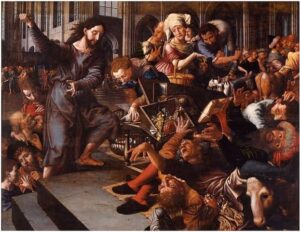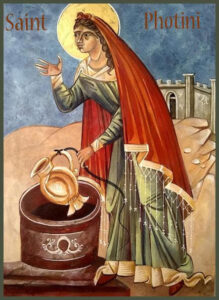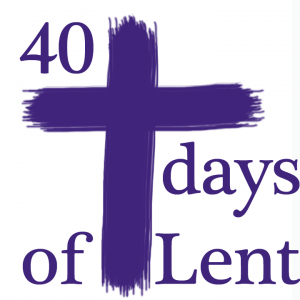 There is a graphic artist named Brian Andreas whose work I can’t really describe to you. He uses a lot of primary colors, representational but non-realistic images, and words to create prints called “StoryPeople.” In one of them that I saw a while back is this quotation (I don’t know if it’s original to Mr. Andreas or quoted from someone else):
There is a graphic artist named Brian Andreas whose work I can’t really describe to you. He uses a lot of primary colors, representational but non-realistic images, and words to create prints called “StoryPeople.” In one of them that I saw a while back is this quotation (I don’t know if it’s original to Mr. Andreas or quoted from someone else):
I had no idea that when I invited life to take over that it actually would and now I’m somewhere miles away from any place I know and life keeps waving its arms and grinning like a crazy person saying “This. Is. So. Great.”[1]
I thought of that when I encountered, again, what may be the most famous verse from the Gospel of John in today’s lesson: “For God so loved the world that he gave his only Son, so that everyone who believes in him may not perish but may have eternal life.”[2]
 When I was about 8 or 9 years of age, my grandparents gave me an illustrated bible with several glossy, color illustrations of various stories. They weren’t great art, but they were clear and very expressive. My favorite amongst them was the illustration of today’s gospel lesson.
When I was about 8 or 9 years of age, my grandparents gave me an illustrated bible with several glossy, color illustrations of various stories. They weren’t great art, but they were clear and very expressive. My favorite amongst them was the illustration of today’s gospel lesson. What is Lent all about?
What is Lent all about? We “boast in our sufferings,” writes Paul to the Romans, “knowing that suffering produces endurance, and endurance produces character, and character produces hope, and hope does not disappoint us….”
We “boast in our sufferings,” writes Paul to the Romans, “knowing that suffering produces endurance, and endurance produces character, and character produces hope, and hope does not disappoint us….”
 Today marks the beginning of the season we call “Lent,” an old English word which refers to the springtime lengthening of the days. What is this season all about, these forty days (not counting Sundays) during which we are to be, in some way, doing what a hymn attributed to St. Gregory the Great says: “Keep[ing] vigil with our heavenly lord in his temptation and his fast?”
Today marks the beginning of the season we call “Lent,” an old English word which refers to the springtime lengthening of the days. What is this season all about, these forty days (not counting Sundays) during which we are to be, in some way, doing what a hymn attributed to St. Gregory the Great says: “Keep[ing] vigil with our heavenly lord in his temptation and his fast?” Lenten Journal, Good Friday
Lenten Journal, Good Friday/cdn.vox-cdn.com/uploads/chorus_image/image/63413151/notre_dame_001.0.jpg) Lenten Journal, Day 41
Lenten Journal, Day 41 Lenten Journal, Day 40
Lenten Journal, Day 40 Lenten Journal, Day 39, Palm Sunday
Lenten Journal, Day 39, Palm Sunday

